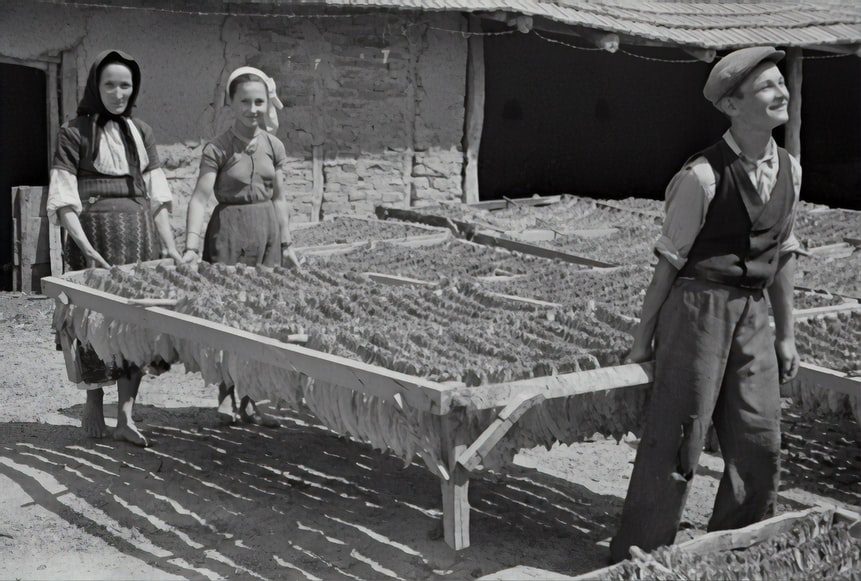Stein plant: tobacco leaves are dried. 1941 by Australian National Library, licensed under Unsplash License
Libertarian advocacy today primarily entails strong advocacy of the free market (as do I), I will seek to substantiate my assertion by addressing some fundamental objections (to the said proposition) of which I know. We know that the concerns around ensuring a minimum standard of working conditions for workers in an unhindered free market is considered one of the main gripes that people have with the free market system in general. Extreme forms of this so-called exploitation, from various forms of child labor to punishing work hours, have been consistently an object with which critical historians have bludgeoned proponents of the free market. The fact of the matter is a lot more sobering – the market has little to do with the factors that result in such circumstances. Take, for instance, child labor. Historians in the modern era have screamed themselves hoarse giving impassionate polemics about the harrowed mills of Industrial Britain, contemporaries of which exist. Most, however, most give little importance to the fact that people moved away from their farms to the cities where these hellish mills operated. To blame the free market for child labor is to miss the simple reality that the problem of child labor significantly predates the free market, and is caused by a much more foundational problem – Hunger.
In their wildest dreams, every person thinks of themselves to be living a life full of dignity and respect. It has been seen that immediate concerns in regards to food and shelter meant families could seldom afford to have their children sit idle. The luxury for the emotional development of children is something that has been witnessed only in modern times, and yet there are scenarios where this development is still absent
What changed in the modern era? For the first time in European countries, people worked hard enough to have personal savings. Trade and commerce flourished enough for tools and technology to enhance the quality of life at home and the workplace. The slow process of familiarising oneself with the details of modernity that the free market ushered in organically developed an unprecedented sense of dignity, health, and capacity in people – it was entirely generated out of the efforts of individuals working for their betterment. Therefore, the appropriate response to seeing child labor or long worktimes is not to simply deem the amorphous category of capitalists as morally vacuous oppressors, but to realise that no parent would keep their child in a sweatshop if they can afford to keep them out – which means that they either never had the ability to save and learn to invest in productive enterprises in life in the first place, or that this ability was severely curtailed. Either way, such morally abhorrent circumstances are best described as being symptomatic of a history of lack of individual liberty.
In countries like India, there have been decades’-long efforts to stomp out such indignities by law. The Indian experience has shown that the law cannot help us to overcome circumstances caused by worldly economic affairs. We still have child labor because people have not been able to work fruitfully and invest in their life. A lack of individual liberty is to blame for this, and this indignity is much more perverse and far-reaching than that of the sweatshop or the long working hours.
Finally, those who suffer from socio-cultural impediments need the opportunity of unhindered free markets to improve their material conditions. Socio-culturally vulnerable ones tend to be considered as ‘riskier’ employees – because of their background and their development in life. Whenever measures like a minimum wage are pursued, all employers tend to employ those deemed as ‘less risky’ – leaving the most amongst us to languish without even the luxury of a noble struggle available to them.
This piece solely expresses the opinion of the author and not necessarily the organization as a whole. Students For Liberty is committed to facilitating a broad dialogue for liberty, representing a variety of opinions.






